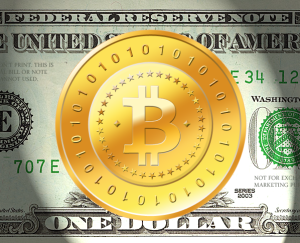Japanese FSA considering making Bitcoin an official currency, on par with all other legal tender
During the rise to prominence of virtual currencies, a degree of speculation has surfaced on several on the subject of whether any government will actually take the step of considering Bitcoin to be an actual currency. Aside from the widespread adoption of virtual currency in nations such as Argentina where, under the Kirchner government, the […]

During the rise to prominence of virtual currencies, a degree of speculation has surfaced on several on the subject of whether any government will actually take the step of considering Bitcoin to be an actual currency.
Aside from the widespread adoption of virtual currency in nations such as Argentina where, under the Kirchner government, the capital control laws made the US dollar illegal and forced citizens to rely on the inflationary peso, as well as the high cost for businesses, which became subject to charges of up to 15% for handling credit card transactions in foreign currency, very little indication has been given that Bitcoin could become a recognized currency by central banks and governments, and fall under regulatory auspices of national financial markets regulators.
Indeed, two years ago, it was suggested that Argentina could become the first nation in the world to adopt Bitcoin as a national currency, during the height of its popularity, when Bitcoin was worth 30% more in Argentina than in neigboring Uruguay, and merchants were trading their Visa and Mastercard terminals for Bitcoin wallets.
Today, a step in the direction of national acceptance has taken place, however this time it is not in a country with despotic rule, a faltering economy or capital control laws.
The country in question is sensible and well organized Japan.
Japanese news agency Nikkei has reported that the Japanese Financial Services Agency (FSA) is considering revising its regulations to clasify Bitcoin as “fulfilling the functions of currency.”
This is a milestone consideration by the Japanese authorities, which would place Bitcoin completely on a par with sovereign currencies.
In order to meet the criteria by which a currency is determined, Bitcoin and other virtual currencies must serve as a medium of exchange, which means that they must be able to be used as a medium for the purchase of goods and services, as well as be exchangeable for legal tender via purchases or trades with an unspecified partner.
This criteria is fundamental to the FSA’s definition and congruently, exchanges and other financial institutions which operate in the digital currency sector would be required to be regulated by the FSA.
Japan’s longstanding history with Bitcoin dates back to the world’s first Bitcoin exchange, MtGox, which failed in February 2014, leaving customers $600 million out of pocket as 850,000 Bitcoins were stolen from the exchange’s secure wallet, resulting in Mark Karpeles’ arrest.
Japan is also widely understood to be the nation in which Bitcoin and its surrounding technology Blockchain – which is in its own right being adopted worldwide – was invented. The name used by the person or group that invented Bitcoin is Satoshi Nakamoto, which appears to be a typically Japanese name, however some eight years after its invention, the exact origin, and the person or entity behind Bitcoin’s creation remains a complete mystery.









